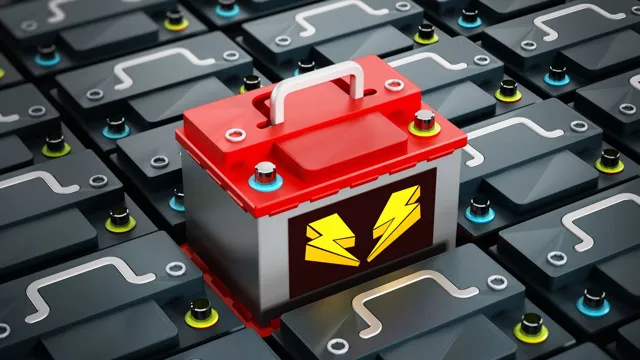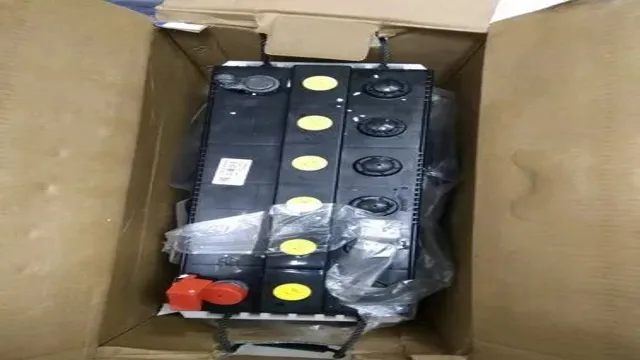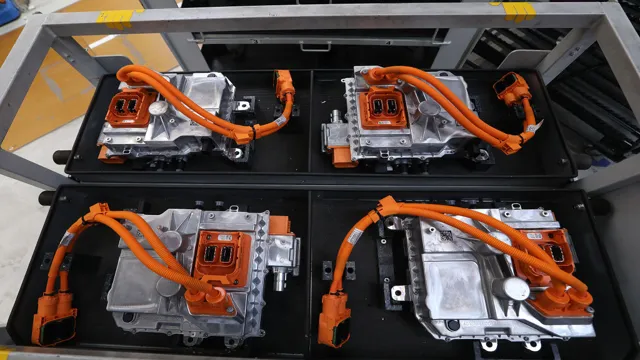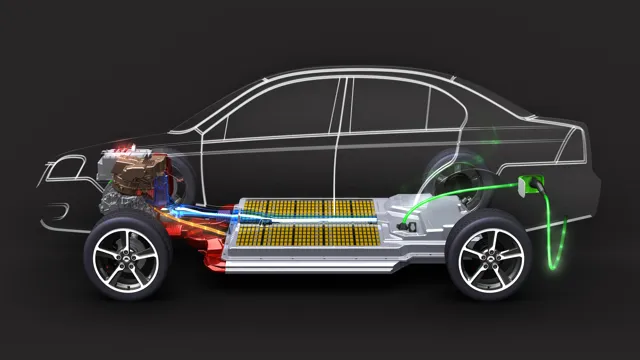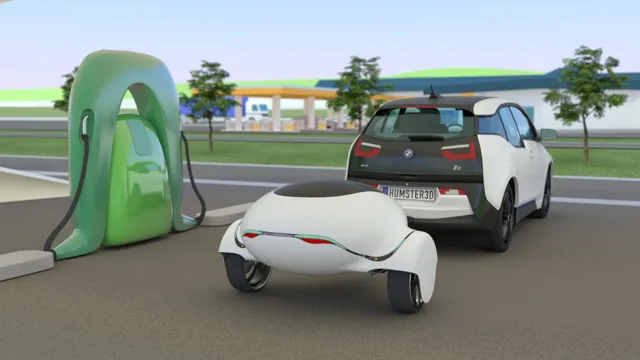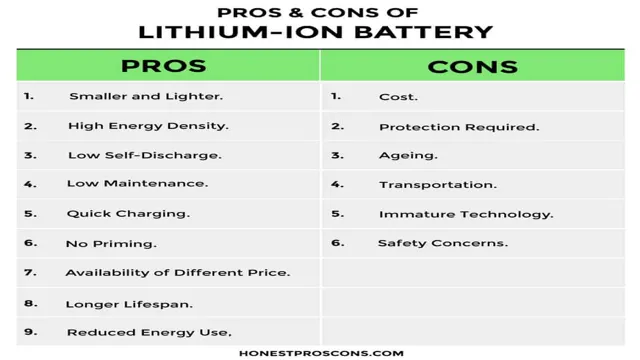Revolutionizing the Road: Uncovering the Biggest Innovations in Electric Car Batteries
Electric cars have come a long way since their inception, and one of the most significant innovations in these vehicles has been in their batteries. Battery technology has grown by leaps and bounds in recent years, with advances in efficiency, charging times, and energy density. Electric car batteries are now capable of providing impressive range and performance, making them a serious contender in the automotive industry.
But what are the biggest innovations in electric car batteries that have made this possible? From solid-state batteries to fast charging technology, there are several game-changing innovations that have helped electric cars finally break through into the mainstream. In this blog post, we’ll explore some of the most exciting developments in electric car battery technology, and how they are powering the cars of the future. So, whether you’re an electric car enthusiast or simply interested in the latest advancements in technology, read on to discover the biggest innovations in electric car batteries and how they are revolutionizing the automotive industry.
Graphene Batteries
Graphene batteries have become one of the biggest innovations in electric car batteries in recent years. These batteries are made from a thin layer of carbon atoms arranged in a honeycomb lattice structure, which makes them incredibly strong and lightweight. Unlike traditional lithium-ion batteries, graphene batteries can take on more charge, are more durable and have a longer lifespan.
They also charge faster and have a higher capacity for energy storage. With their unique physical and chemical properties, graphene batteries offer a promising alternative to traditional batteries, especially in the automotive industry where long-range and performance are crucial. The use of graphene batteries could pave the way for a more sustainable future by reducing the reliance on fossil fuels and creating more efficient and reliable energy sources.
As the demand for electric cars continues to increase, the development of graphene batteries is set to revolutionize the automotive industry and create new opportunities for innovation and growth.
Graphene’s Conductivity and Efficiency
Graphene batteries are making waves in the scientific community due to their high conductivity and efficiency. Graphene’s unique properties allow for faster charging times, longer-lasting batteries, and lighter-weight devices overall. This wonder material works by allowing electrons to flow quickly and easily through its lattice structure, reducing resistance and heat buildup.
Graphene batteries could revolutionize the tech industry by creating smaller and more efficient energy storage solutions for everything from smartphones to electric cars. With ongoing research and development, graphene batteries could become the norm in the near future, ushering in a new era of sustainable and innovative technology.
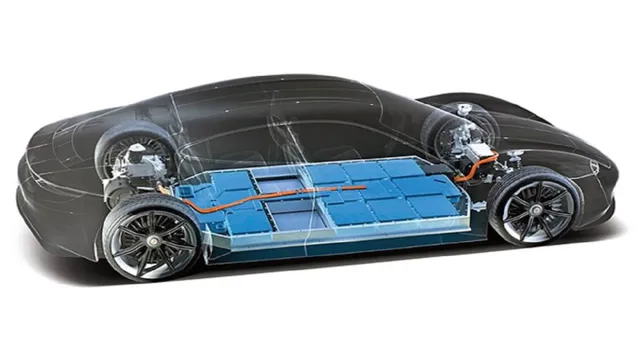
Tesla’s Collaboration with Graphene Companies
Tesla’s collaboration with graphene companies for developing graphene batteries has been making waves in the battery technology industry. Graphene batteries have unique properties that make them highly desirable in electric vehicles as well as other applications. Graphene is a one-atom-thick layer of pure carbon that allows for extremely high conductivity and surface area.
Tesla has been working with companies such as Graphene Nanochem and Group NanoXplore to utilize graphene in the battery cells. By incorporating graphene into the batteries, Tesla aims to increase the battery’s energy density, charge-discharge rates, and reduce the cell’s weight. This will lead to longer driving ranges for electric vehicles, faster charging times, and overall better performance.
With the continued collaboration between Tesla and graphene companies, we can expect to see significant advancements in battery technology in the near future.
Solid State Batteries
One of the biggest innovations in electric car batteries today is the development of solid-state batteries. Unlike traditional lithium-ion batteries, which have a liquid electrolyte, solid-state batteries utilize a solid electrolyte, allowing for increased energy density and faster charging times. This new technology will revolutionize the electric car industry by offering longer range, shorter charging times and increased safety due to the absence of flammable liquid electrolytes.
Toyota plans to release a solid-state battery-powered car by 2025, and other car manufacturers are sure to follow. However, solid-state batteries are still in the early stages of development and face challenges such as high production cost and complex manufacturing processes. Overall, the development of solid-state batteries is a promising advancement in battery technology and has the potential to make electric cars more widespread and affordable in the near future.
Advantages Over Traditional Li-ion Batteries
Solid state batteries have several advantages over traditional Li-ion batteries. Firstly, they offer higher energy density, which means they can store more energy in a smaller space. This makes them ideal for use in electric vehicles, where space is at a premium.
Solid state batteries are also safer than Li-ion batteries, as they do not contain flammable electrolytes. This reduces the risk of fire, which is a major concern with Li-ion batteries. Additionally, solid state batteries have a longer lifespan than Li-ion batteries, which means they can be recharged and used more times before needing to be replaced.
This makes them a more cost-effective option in the long run. Overall, solid state batteries are a promising new technology that has the potential to revolutionize the energy storage industry.
Toyota and Dyson’s Solid State Battery Plans
Solid State Batteries Toyota and Dyson are two big names in the automobile and technology sectors respectively, and both companies have been working towards developing solid state batteries. These batteries are a revolutionary step forward in battery technology, providing high energy density, longer lifespan, and faster charging times. While traditional lithium-ion batteries have flammable liquid electrolytes, solid-state batteries replace that with a solid electrolyte, which makes them safer and more durable.
Toyota has been working on solid state batteries for a while now, with plans to commercialize them by 202 The company has stated that their solid state batteries would be able to provide twice the driving range of traditional lithium-ion batteries. Similarly, Dyson has invested in solid state technology, with reports suggesting that the technology will be launched in an electric car by 202
The potential implications of solid state batteries are huge, not just for the automobile industry but for the wider energy storage sector. The technology could lead to more efficient and sustainable energy storage solutions, helping to power the transition to a low-carbon economy. With companies like Toyota and Dyson investing in solid state batteries, it is only a matter of time before this technology becomes mainstream.
Silicon Anode Batteries
Silicon anode batteries are quickly becoming one of the biggest innovations in the electric car battery industry. These batteries use silicon as opposed to graphite in their anodes, which allows for a greater storage capacity and longer lifespan. This means that electric cars can travel farther on a single charge and require less frequent battery replacements.
Silicon anode batteries have the potential to revolutionize the industry and make electric cars a more viable option for individuals who rely heavily on their vehicles. As these batteries continue to develop and become more widely available, we can expect to see significant advancements in the electric car market. Overall, silicon anode batteries are an exciting development that holds great promise for the future of environmentally-friendly transportation.
The Benefits of Using Silicon in Anodes
Silicon anode batteries have been gaining popularity in recent years due to their numerous benefits compared to traditional lithium-ion batteries. One of the main advantages of using silicon in anodes is its high energy density, which allows for longer battery life and greater performance. Silicon can also hold up to ten times more lithium ions than graphite, which is typically used in traditional anodes.
This means that batteries using silicon-based anodes can provide more power while reducing their overall size and weight. Additionally, using silicon in batteries can significantly reduce their carbon footprint since it is abundant and environmentally friendly. Despite these benefits, some challenges remain with using silicon, including its tendency to expand and contract during charging and discharging, which can cause degradation over time.
However, ongoing research and improvements in technology are addressing these challenges, making silicon anode batteries a promising solution for future energy needs.
Potential for Higher Energy Density and Longer Lifespan
Silicon anode batteries have the potential to significantly increase energy density and lifespan compared to traditional lithium-ion batteries. The reason for this is that silicon has a higher energy storage capacity than graphite, which is commonly used in traditional batteries. However, there have been challenges in using silicon as an anode material due to its tendency to expand and contract during charging and discharging, which can cause damage to the battery.
Researchers are actively working on addressing these challenges by using nanotechnology to manipulate the structure of silicon and develop coatings that can better manage the expansion and contraction. By achieving success in these efforts, silicon anode batteries could revolutionize the energy storage industry by providing higher performance, longer lifespan and lower cost.
Lithium-Sulfur Batteries
Lithium-sulfur batteries have been touted as one of the biggest innovations in electric car batteries, and for good reason. These batteries have the potential to bring down the cost of electric vehicles and increase their range. Lithium-sulfur batteries can store more energy and are lighter than their lithium-ion counterparts.
They also have the potential to have a longer lifespan and be more environmentally friendly, as sulfur is a more abundant and less expensive material than cobalt, which is commonly used in lithium-ion batteries. While there are still some challenges to overcome, such as the battery’s tendency to degrade over time, researchers are optimistic about the future of lithium-sulfur batteries in the electric vehicle industry. With continued research and development, these batteries could become the standard in powering the next generation of electric cars.
Higher Capacity and Energy Density than li-ion batteries
Lithium-sulfur batteries have the potential to revolutionize the energy industry due to their higher capacity and energy density than traditional lithium-ion batteries. These batteries are made using a sulfur cathode and a lithium anode, which provides a lightweight and high-energy density power source. Lithium-sulfur batteries are also cheaper to produce than lithium-ion batteries, making them an ideal candidate for widespread adoption.
However, there are challenges to overcome before they can become commercially viable. One major issue is the tendency for the sulfur cathode to dissolve over time, which reduces the battery’s capacity. Researchers are working to solve this issue and improve the technology to one day provide long-lasting, high-performance batteries for a variety of applications, from electric vehicles to renewable energy storage.
Overall, the energy density and cost-effectiveness of lithium-sulfur batteries make them an exciting prospect for the future of energy.
Conclusion
In the world of electric cars, battery technology is the driving force behind innovation and change. From the early days of heavy and inefficient lead-acid batteries, to the new age of sleek and powerful lithium-ion cells, the evolution of battery technology has transformed the industry. With advancements in energy density, range, and charging speed, electric cars are now a viable option for more people than ever before.
And who knows what the future holds? Perhaps we’ll soon see batteries made from even more exotic materials, or breakthroughs in wireless charging. All we know is that the innovations in electric car batteries are electrifying, and the future looks bright. So let’s charge up and hit the road – the world is our electrified oyster!”
FAQs
What are some of the biggest innovations in electric car batteries?
There are several major innovations that have been made in electric car batteries over the last few years. These include advances in materials used in battery construction, improvements in battery management systems, and the development of fast-charging technologies.
How have these innovations impacted the range and performance of electric cars?
These innovations have led to significant increases in the range of electric cars, as well as improved performance in terms of acceleration and overall driving experience. They have also helped to reduce the cost of electric vehicles by making batteries more efficient and longer-lasting.
What challenges do electric car makers still face in improving battery technology?
Some of the biggest challenges that electric car makers face in improving battery technology include reducing the weight and cost of batteries, developing more advanced battery management systems, and ensuring that batteries are safe and reliable over the long term.
What role do government incentives and regulations play in driving innovation in electric car batteries?
Government incentives and regulations can play a significant role in driving innovation in electric car batteries. For example, tax credits and subsidies can help to encourage automakers to invest in research and development, while emissions standards can incentivize them to improve the efficiency and performance of their vehicles.
